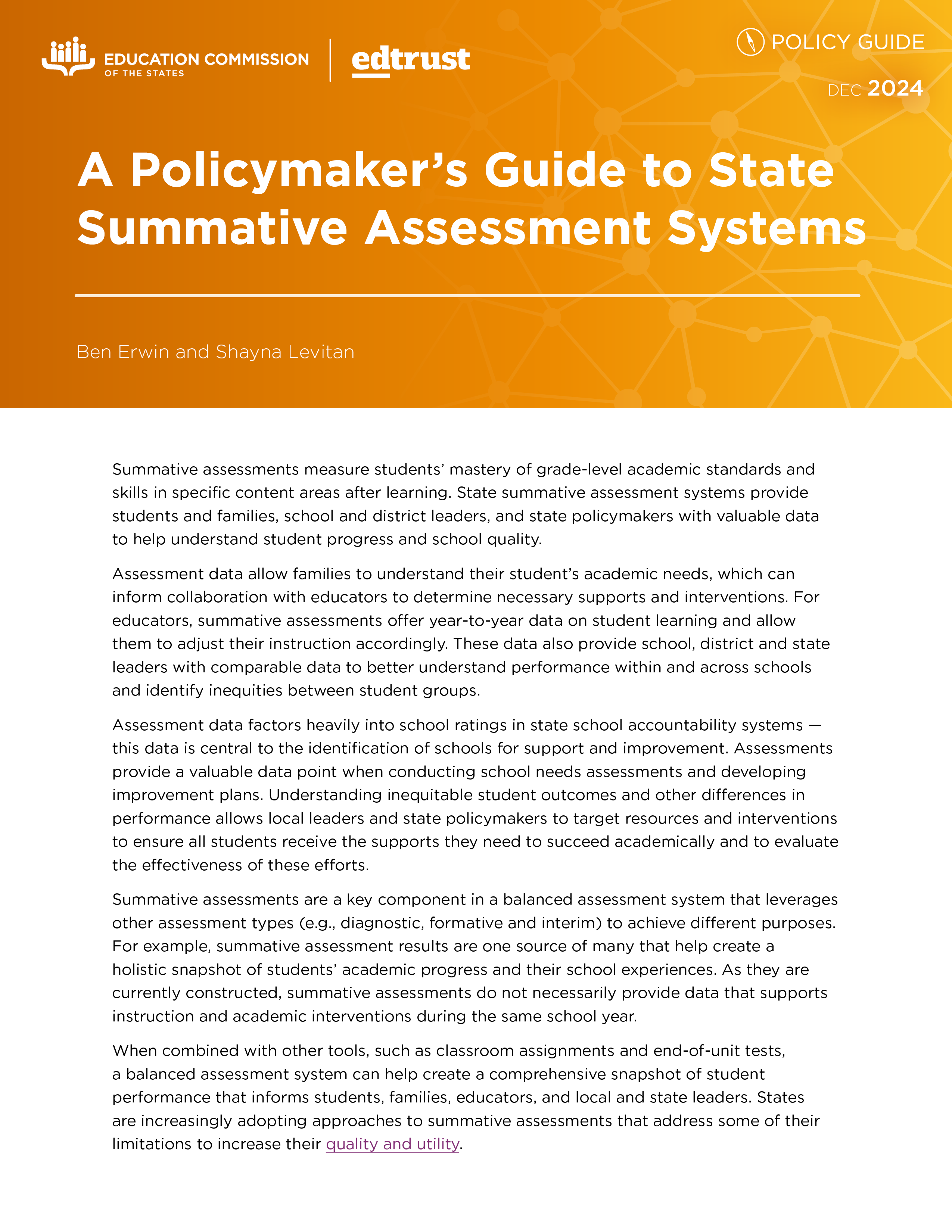In the years following the onset of the COVID-19 pandemic, states are considering how they approach the design of their existing assessment and accountability systems. Assessment data gathered from these systems allow families to understand their student’s academic needs and inform appropriate interventions. These data also provide school, district and state leaders with comparable information to better understand performance within and across schools and identify inequities between student groups.
Understanding inequitable student outcomes and other differences in performance allows local leaders and state policymakers to target resources and interventions to ensure all students receive the supports they need to succeed academically and to evaluate the effectiveness of these efforts.
In partnership with EdTrust, this Policy Guide offers an overview of federal requirements, considerations for policymakers to increase the quality and utility of assessments, and examples of innovative state approaches to utilizing flexibilities in federal policy.
Interested in learning more?
Read our Student Assessment 101: A Guide for State Leaders Special Report, which offers a glossary of common questions and a deeper dive into state and federal assessment policy for those who are just getting started with student assessment work.
Explore our 50-State Comparison: School Accountability Systems for comprehensive information on state systems for federal accountability as captured in state ESSA plans and state education agency resources.



